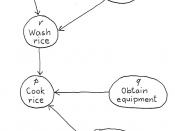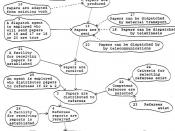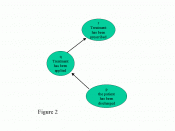Soft System Methodology (SSM) was developed as methodology by Peter Checkland and his colleagues working at Lancaster University and Open University in the 1970s. The idea of the SSM is to understand, identify and solve the real world problems.
This paper will start with the history of SSM and its definition. Then it describes the SSM methodology with a practical case study from the real world. The author will look into the main features and benefits SSM. Afterwards the author will present the relationship between the soft systems thinking, knowledge management, intellectual capital and social capital.
Soft Systems Methodology (SSM) is now taught and used around the world. "SSM as an approach to tackling the multi-faceted problems which managers face; in doing this, it also established the now well-recognized distinction between ' hard' and ' soft' systems thinking" (Winter, 2000). Soft Systems Methodology is based on systems thinking. It views the problem domain in a holistic rather than reductionist way, recognising that the component parts are interconnected, so that a change to one part will affect the other parts.
"Systems thinking is a framework for seeing interrelationships rather than things, for seeing patterns of change rather than static snapshots" (Frank, 2002). Systems thinking propose flexible language which can expand, shape and change the human being normal way of thinking in regard to complex matters. Wang and Ahmed (2003) argue that soft systems enclose a wide range of soft components including historical, personal, cultural and institutional factors which lays the bases of organisational learning.
Taking a holistic approach requires the ability to distance oneself from day-to-day operational problems and to see how problems and issues are connected to the overall pattern that underlies particular details and events. Senge (1990, cited Bonn, 2001) calls this approach as "systems thinking''. He argues that:...


